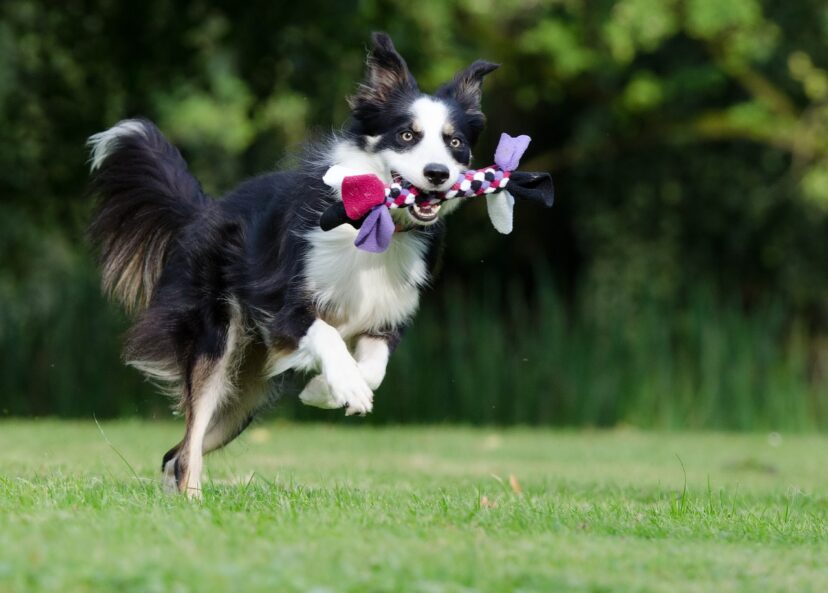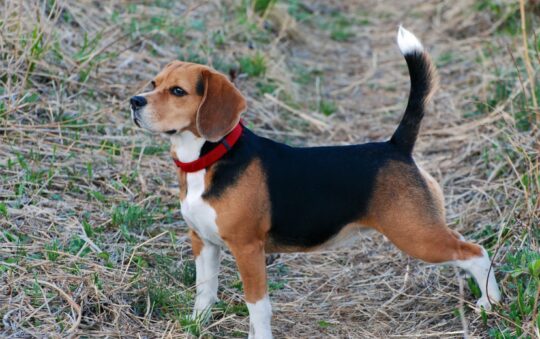A Guide To Your Perfect Dog Companion
As an avid dog enthusiast and someone deeply involved in dog care, I can confidently say that finding the right dog breed is crucial for a fulfilling and joyful companionship. Each dog breed has its own unique characteristics and traits that cater to various lifestyles and preferences. In this article, I’ll be sharing my insights on the top dog breeds in 2023 and why they stand out in the canine world.
When selecting a dog breed, it’s crucial to take various factors into account to ensure a compatible match with your lifestyle and preferences. Dogs become beloved family members, so making an informed decision is essential. Here are some key considerations to keep in mind:
Size and Living Space: Assess the size of your living space and whether it can comfortably accommodate a larger breed or if a smaller breed is more suitable, especially for apartment living.
Exercise and Activity Requirements: Different breeds have varying exercise needs. Some are highly energetic and require frequent physical activity, while others are more laid-back and content with less exercise.
Temperament and Compatibility: Consider your own lifestyle and personality. Do you desire an active and adventurous companion or a calm and affectionate lap dog? Ensure the breed’s temperament aligns well with your preferences.
Grooming Needs: Different breeds have diverse grooming requirements. Some dogs have long, luxurious coats that need regular grooming, while others have short, low-maintenance coats. Think about the grooming commitment you’re willing to undertake.
Allergies and Shedding: If allergies are a concern for you or your family members, opt for hypoallergenic breeds or those with minimal shedding to reduce potential allergic reactions.
Training and Intelligence: Evaluate the breed’s trainability and intelligence. Some breeds are highly trainable and eager to please, while others may be more independent and stubborn.
Lifespan and Health Concerns: Research the typical lifespan of the breed and be aware of any common health issues associated with it. This knowledge will help you provide proper care and anticipate potential veterinary expenses.
Socialization and Compatibility with Other Pets: If you have other pets or interact with other animals frequently, consider how the potential breed gets along with them. Some breeds are more social and friendly with other animals.
Family-Friendly: For families with children or those planning to have kids in the future, choosing a family-friendly breed known for being good with children is essential.
Guarding Instincts: Determine whether you want a dog with strong guarding instincts to protect your home and family or a more sociable and approachable breed.
Activity Level Changes Over Time: Keep in mind that a dog’s activity level may change as they age. Puppies and young dogs tend to be more energetic, while older dogs may have reduced activity levels.
By considering these factors, you can make a well-informed decision when choosing a dog breed that aligns with your lifestyle, preferences, and living situation. Conduct thorough research on different breeds, seek advice from veterinarians or experienced dog owners, and spend time with the breed you’re interested in to ensure a lasting and harmonious bond with your new furry companion.
Meet Our Top Dog Breeds In 2023
 Labrador Retriever: Labrador Retrievers are renowned for their friendly and affectionate nature, making them one of the most popular family dogs. Besides their loving demeanor, they are also highly intelligent and trainable. Their versatility allows them to excel in various roles, including service dogs, therapy dogs, and search and rescue operations. Labradors are known for their love of water and are excellent swimmers, making them great companions for outdoor activities and water sports. Their high energy levels mean they require regular exercise to keep them happy and healthy. Labrador Retrievers form strong bonds with their families and are gentle and patient with children, making them fantastic playmates and loyal protectors.
Labrador Retriever: Labrador Retrievers are renowned for their friendly and affectionate nature, making them one of the most popular family dogs. Besides their loving demeanor, they are also highly intelligent and trainable. Their versatility allows them to excel in various roles, including service dogs, therapy dogs, and search and rescue operations. Labradors are known for their love of water and are excellent swimmers, making them great companions for outdoor activities and water sports. Their high energy levels mean they require regular exercise to keep them happy and healthy. Labrador Retrievers form strong bonds with their families and are gentle and patient with children, making them fantastic playmates and loyal protectors.
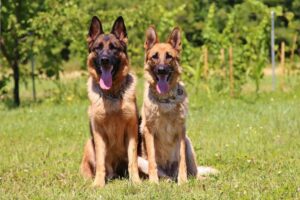 German Shepherd: German Shepherds are known for their intelligence, loyalty, and versatility. They are often used in police and military work, as well as in search and rescue operations. Their protective instincts make them excellent guard dogs, and they are fiercely loyal to their families. German Shepherds require mental and physical stimulation to thrive and can become bored or develop behavioral issues without proper training and engagement. They are highly trainable and excel in obedience and agility training. Despite their imposing appearance, German Shepherds can be gentle and affectionate with their family members, but early socialization is essential to ensure they are well-adjusted and friendly with strangers and other animals.
German Shepherd: German Shepherds are known for their intelligence, loyalty, and versatility. They are often used in police and military work, as well as in search and rescue operations. Their protective instincts make them excellent guard dogs, and they are fiercely loyal to their families. German Shepherds require mental and physical stimulation to thrive and can become bored or develop behavioral issues without proper training and engagement. They are highly trainable and excel in obedience and agility training. Despite their imposing appearance, German Shepherds can be gentle and affectionate with their family members, but early socialization is essential to ensure they are well-adjusted and friendly with strangers and other animals.
Golden Retriever: Golden Retrievers are known for their friendly and gentle temperament, which has earned them the reputation of being one of the best family dogs. They are highly sociable and get along well with children, other pets, and even strangers. Their loving and patient nature makes them excellent therapy dogs and emotional support animals. Golden Retrievers are eager to please, making them easy to train and great companions for various activities, including hiking, fetch, and obedience competitions. They are relatively low-maintenance in terms of grooming but do require regular exercise to prevent weight gain and keep them mentally stimulated.
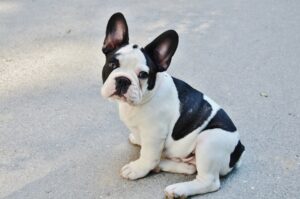 French Bulldog: French Bulldogs may be small in size, but they are big on personality. They are known for their charming and affectionate demeanor, making them popular companions for singles and families alike. Frenchies are adaptable and can thrive in apartment living as long as they receive enough attention and exercise. Their playful nature makes them excellent playmates for children, and their small size makes them easy to handle. However, due to their brachycephalic (short-nosed) features, they can be sensitive to extreme heat, so owners must take precautions to keep them cool in hot weather.
French Bulldog: French Bulldogs may be small in size, but they are big on personality. They are known for their charming and affectionate demeanor, making them popular companions for singles and families alike. Frenchies are adaptable and can thrive in apartment living as long as they receive enough attention and exercise. Their playful nature makes them excellent playmates for children, and their small size makes them easy to handle. However, due to their brachycephalic (short-nosed) features, they can be sensitive to extreme heat, so owners must take precautions to keep them cool in hot weather.
Poodle: Poodles are highly intelligent and come in various sizes, including standard, miniature, and toy. Their hypoallergenic coat makes them an excellent choice for allergy sufferers. Poodles are eager to learn and excel in obedience training, making them highly versatile in different canine sports and activities. Their playful and friendly nature endears them to families and children. Regular grooming is essential to maintain their coat in good condition, but their intelligence and adaptability make them an ideal choice for families with varying lifestyles and living situations.
Siberian Husky: Siberian Huskies are known for their striking appearance, including their beautiful coat and captivating blue eyes. Originally bred as sled dogs, Huskies have incredible endurance and thrive in colder climates. They have a strong independent streak, which can sometimes make training a challenge, especially for first-time dog owners. Huskies require plenty of exercise and mental stimulation to prevent boredom and undesirable behaviors. Due to their high prey drive, they may not be suitable for households with small pets such as cats or rabbits. Responsible ownership and a commitment to meeting their needs are essential for ensuring a happy and well-behaved Husky.
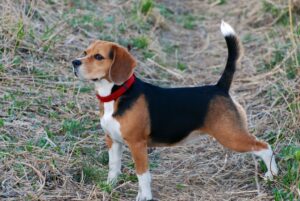 Beagle: Beagles are friendly, curious, and sociable dogs, which makes them wonderful family companions. Their keen sense of smell and tracking abilities are remarkable, but this trait can lead them to follow their nose if not properly supervised or trained. Beagles enjoy outdoor activities and require regular exercise to stay fit and mentally stimulated. They get along well with children and other pets and have a playful nature that makes them great playmates. Beagles are known for their distinctive bay, which is a unique vocalization they use to communicate with their owners.
Beagle: Beagles are friendly, curious, and sociable dogs, which makes them wonderful family companions. Their keen sense of smell and tracking abilities are remarkable, but this trait can lead them to follow their nose if not properly supervised or trained. Beagles enjoy outdoor activities and require regular exercise to stay fit and mentally stimulated. They get along well with children and other pets and have a playful nature that makes them great playmates. Beagles are known for their distinctive bay, which is a unique vocalization they use to communicate with their owners.
Bulldog: Bulldogs have a unique and endearing appearance, characterized by their wrinkled face and distinctive pushed-in nose. Despite their somewhat intimidating appearance, Bulldogs are known for their gentle and calm temperament, making them excellent companions for individuals or families. They have a relatively low energy level and are content with moderate exercise, making them suitable for apartment living or less active households. Bulldogs may need some assistance in regulating their body temperature in extreme heat due to their brachycephalic features, so owners should take precautions to keep them cool during hot weather.
Australian Shepherd: Australian Shepherds are highly intelligent, agile, and versatile herding dogs. They excel in obedience training and thrive in environments that provide them with mental and physical challenges. Australian Shepherds are known for their boundless energy and require plenty of exercise and mental stimulation to prevent boredom-related behaviors. They form strong bonds with their families and are loyal and protective, making them excellent watchdogs. Active individuals and families who enjoy outdoor activities and training exercises will find Australian Shepherds to be loyal, loving, and adventurous companions.
Conclusion
These are just some of the fascinating characteristics and traits of the mentioned dog breeds. It’s important to remember that individual dogs can have unique personalities, even within the same breed. Before bringing any dog into your home, spend time with them, interact, and get to know their temperament to ensure a good match with your lifestyle and preferences. Responsible ownership, proper training, and providing the necessary care and attention will lead to a happy and fulfilling relationship between you and your canine companion.
Choosing the right dog breed is a decision that shouldn’t be taken lightly. Each breed comes with its unique qualities, and finding the perfect match for your lifestyle and preferences is essential.
FAQs About Dog Breeds
Are all Labrador Retrievers good with kids?
Labrador Retrievers are generally excellent with children due to their friendly and patient nature. However, individual temperament may vary, so it’s essential to socialize and train them properly.
Do Siberian Huskies require a lot of exercise?
Yes, Siberian Huskies are highly active and require regular exercise and mental stimulation to prevent boredom and behavioral issues.
Can French Bulldogs live comfortably in apartments?
Yes, French Bulldogs are well-suited for apartment living due to their small size and lower exercise needs. However, regular short walks are still essential for their health.
Are Beagles easy to train?
Beagles can be a bit stubborn, but with patience and positive reinforcement training, they can learn and follow commands effectively.
Do Australian Shepherds get along with other pets?
Australian Shepherds can get along well with other pets if properly socialized from an early age. Early socialization helps reduce potential issues with aggression or dominance.
